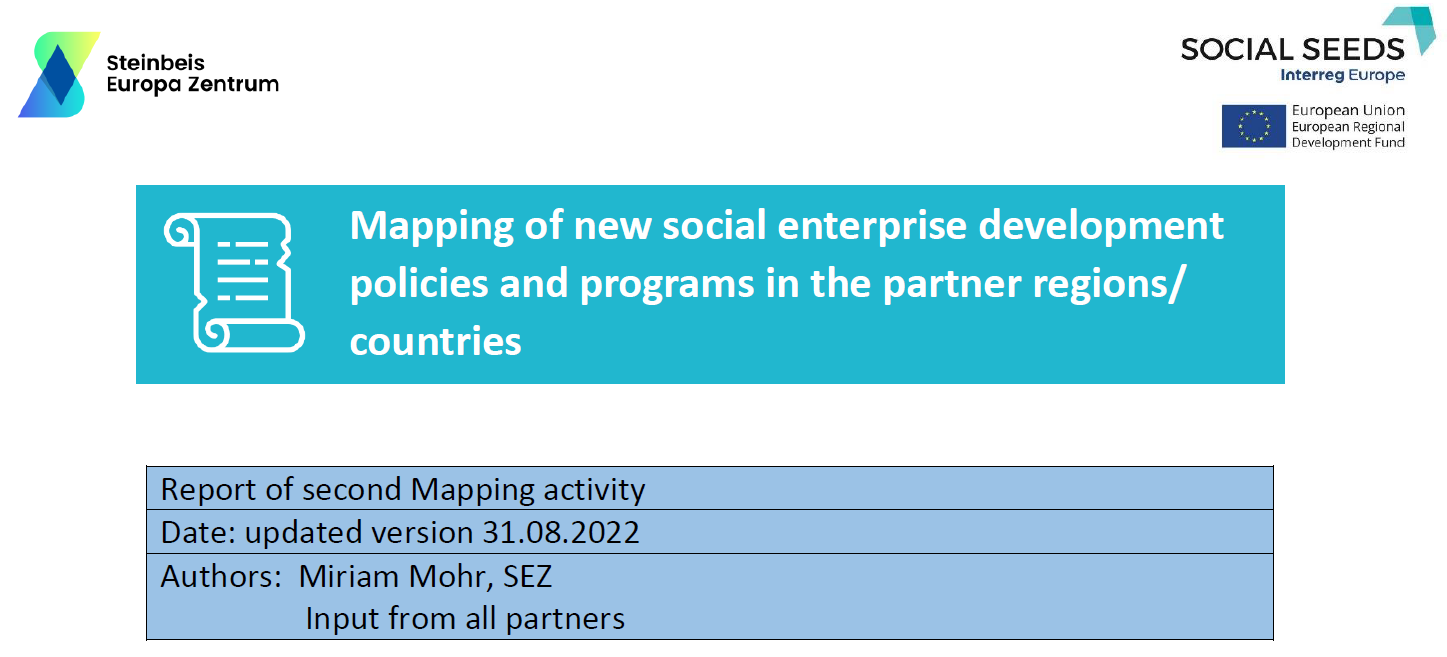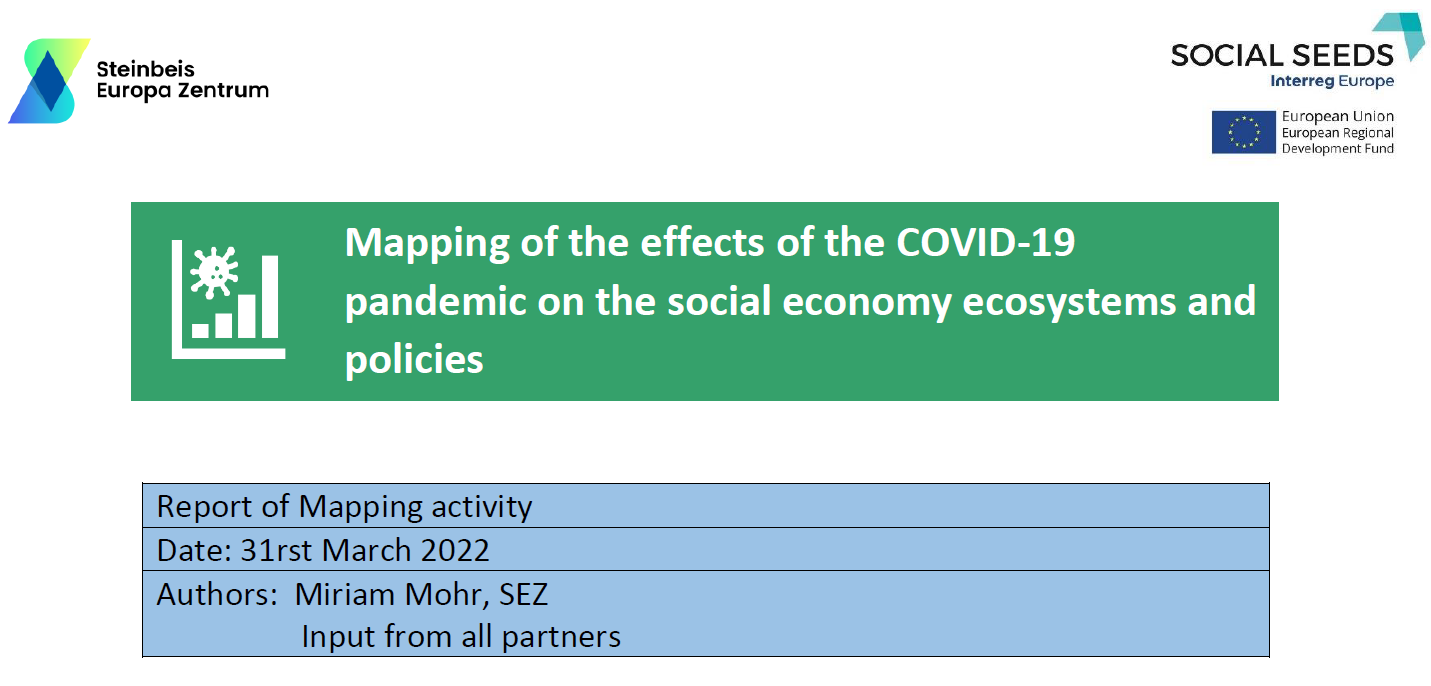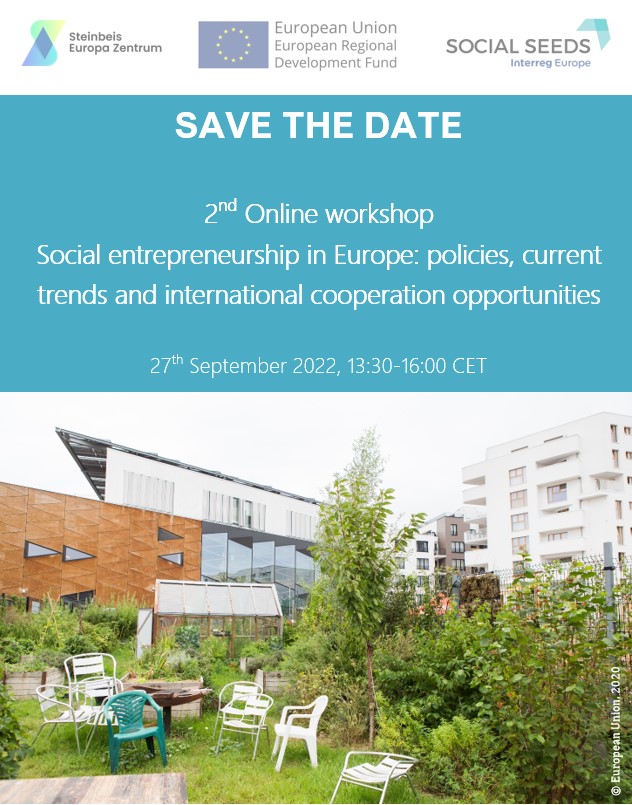EaSI - Transaction cost support for social enterprise finance (call reference VP/2017/013 - deadline 15 April 2018)
Purpose of the call
The purpose of this call is to explore best ways to complement the already existing financial instruments (in particular the social EFSI equity instruments) with a grant component to further promote the development of the social enterprise finance market and facilitate access to finance for social enterprises.
Objective
The objective of the call is to test a transaction cost support scheme in the form of a grant to be combined with financial instruments as a means to address the mismatch of needed and sustainable ticket sizes. More particularly, it aims at catalysing smaller risk-capital investments of below EUR 500 000 that otherwise would not happen.
Activities
Activities related to the preparation, conclusion and follow-up of long term risk capital investments into social enterprises may be funded under this call for proposals.
This may include activities such as:
travelling to meet (potential) investees;
screening and processing investment applications;
preparing legal documents, potentially with a lawyers' advice;
carrying out the due diligence, including assessing (potential) impact;
providing investment readiness, scaling readiness or business restructuring support;
bringing in co-investors;
managing the investments and monitoring social impact.
Expected results
The expected result is an increased number of risk-capital investments of below EUR 500 000 in social enterprises.
For more details, please click here.
EaSI-PROGRESS - Call for proposals on social innovation and national reforms: Innovative work-life balance strategies to facilitate reconciliation of professional and caring responsibilities (call reference VP/2018/005 - deadline 18 April 2018)
Purpose
This call for proposals aims to support governmental and non-governmental actors, and social partners in delivering on the rights and principles set out in the Pillar of Social Rights through social innovation and national policy reforms as regards reconciling work and private life.
This call aims at funding projects to develop, test, and implement innovative work-life balance strategies in the workplace. The purpose of these strategies is to facilitate the reconciliation of work and private life through supporting a more equal share of care responsibilities between working women and men, thereby encouraging a higher participation of women in the labour market.
Objective
The objectives of this call are:
to develop, test and/or implement innovative work-life balance strategies in the workplace, conducive towards higher participation of women in the labour market and a better sharing of care responsibilities between women and men;
to develop sustainable multi-level partnership models that would facilitate the implementation of innovative work-life balance strategies in the workplace;
to foster knowledge and experience-sharing between different Member States and/or companies already implementing successful work-life balance strategies, with a strong emphasis on challenges faced by women in the labour market and the need to involve more men in care duties;
to facilitate access to individualised information about social protection rights and entitlements;
to facilitate professional and geographical mobility of the economically active population;
to support the modernisation of social protection systems enabling them to respond to such challenges as digitalisation, the changing world of work, ageing of population and the capacity to withstand economic shocks.
Types of actions
Strategies to be developed under this call will notably encompass flexibility of work organisation, adapting working hours to workers' needs, family-conscious human resources policies, on-site corporate childcare etc.
Proposed actions should be creative and propose innovative measures whilst building on existing good practice where relevant.
Expected results
Tested, developed and implemented innovative work-life balance strategies in the workplace, with a view to facilitate the reconciliation of work and private life and to support a better sharing of care responsibilities between women and men, thereby encouraging a higher labour market participation of women.
Increasing uptake of family leaves and flexible working arrangements by men, encouraging a more balanced share of caring responsibilities that will support women to re-enter the labour market or avoid that they drop out of the labour market.
Changing work-place culture and elimination of gender stereotypes that see women as carrying the burden of caring responsibilities and men the burden of being the family breadwinner.
Increasing labour market participation of women due to increased work-life balance, leading to more productive workforce, less absenteeism from work and easier access to talented workforce for businesses.









